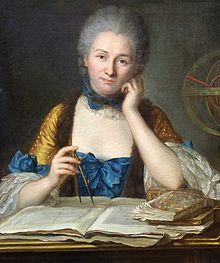
Project Vox [http://projectvox.library.duke.edu]
Project Vox seeks to recover the lost voices of women who have been ignored in standard narratives of the history of modern philosophy. We aim to change those narratives, thereby changing what students around the world learn about philosophy’s history.
New Narratives [http://www.newnarrativesinphilosophy.net]
New Narratives in the History of Philosophy aims to develop new narratives of our philosophical past that centrally include women thinkers, and thereby to reconfigure, enrich and reinvigorate the philosophical canon. Doing this involves lots of work, some of which is reflected in the projects found on this website. We are creating research tools including an open access website and a comprehensive annotated bibliography of primary sources; developing and shaping curricular resources to enrich the teaching of the history of philosophy; building an international network of scholars, students and academic institutions supporting research on non-canonical philosophers; and increasing awareness among the general public of long neglected aspects of our intellectual past.
SIEFAR (Société Internationale pour l’Étude des Femmes de l’Ancien Régime) [http://siefar.org]
La SIEFAR regroupe des chercheurs et chercheuses d’une vingtaine de nationalités, répartis sur plusieurs continents. Elle a pour vocation de rassembler toutes les personnes qui se reconnaissent dans ses objectifs, quels que soient leur statut professionnel, leur nationalité, leur sexe, leur degré d’implication dans le travail de recherche. Elle se consacre à l’étude des conditions de vie, des actions, des oeuvres et de la pensée des femmes des périodes précédant la Révolution française.
Women Intellectuals of 18th Century Germany
[http://publish.uwo.ca/~cdyck5/UWOKRG/women.html]

While much of German intellectual life in the 18th century was driven by the university (and the men who held academic positions there), women contributed in a number of crucial ways to the contemporary intellectual culture. While some exercised an indirect influence through the organization of the popular literary salons, a number were able to establish themselves as important scholars, translators, and popularizers, some through drawing on their connections to prominent male relations, and still others actively sought to break down the barriers facing women in academia. Though they are largely excluded from the Enlightenment canon, and suffer from a lack of attention even in comparison with their French and British counterparts (with few of their works translated into English), the works catalogued in this database are certainly deserving of wider philosophical consideration, as indeed the history of 18th century Germany thought cannot be told without acknowledging the key roles that these women played.
